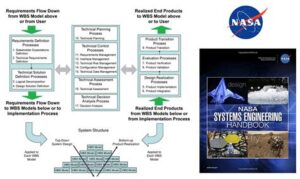Explore the significance of systems engineering in group projects, key roles, communication strategies, best practices, and how to measure success for effective collaboration.In today’s fast-paced technological landscape, the success of complex projects hinges on precise execution and cohesive teamwork. This is where a dedicated Systems Engineering Group steps in, focusing on optimizing processes and enhancing collaboration across multidisciplinary teams. With an emphasis on integrating various system components, understanding the importance of systems engineering is vital for achieving project goals efficiently. From defining key roles within the team to implementing effective communication strategies, this article will delve into the essential practices that drive successful group dynamics in systems engineering. Whether you’re a seasoned professional or new to the field, our insights will equip you with the knowledge to foster collaboration and achieve outstanding results in your projects. Join us as we explore the best practices and measurable success of effective systems engineering in group environments.
Understanding The Importance Of Systems Engineering In Group Projects
In the realm of collaborative projects, systems engineering emerges as a pivotal framework that ensures success through structured methodologies. Its importance cannot be overstated when multiple stakeholders contribute to a common goal. Here are several reasons why systems engineering is vital in group settings:
- Holistic Approach: Systems engineering encourages teams to analyze projects from a comprehensive viewpoint, integrating various components and processes rather than working in silos.
- Enhanced Collaboration: By leveraging the principles of systems engineering, team members can better understand each other’s roles and contributions, fostering a more cohesive working environment.
- Mitigation of Risks: Through rigorous planning and analysis, systems engineering helps identify potential risks early in the project lifecycle, allowing teams to implement effective mitigation strategies.
- Improved Decision-Making: Utilizing data-driven insights derived from systems engineering practices empowers teams to make informed decisions that contribute to the project’s overall objectives.
- Lifecycle Management: Systems engineering emphasizes the importance of managing the entire lifecycle of a project, from conception to deployment, ensuring sustainability and efficiency.
Incorporating systems engineering methodologies into group projects not only enhances the effectiveness of collaboration but also leads to superior outcomes and higher quality results.
Key Roles Within A Systems Engineering Group Team
Within a systems engineering group, various roles are critical to the success of projects. Each member brings unique skills and responsibilities, facilitating effective collaboration and quality outcomes. Here are some of the key roles found in a typical systems engineering team:
- Systems Engineer: This role is central to the systems engineering process, responsible for defining, analyzing, and managing system requirements. They ensure that the overall system design aligns with project goals and compliance standards.
- Project Manager: The project manager oversees the entire project lifecycle, coordinating the team’s efforts, managing budgets, and ensuring timely completion. They act as a liaison between the systems engineering group and stakeholders.
- Requirements Analyst: This individual focuses on identifying, documenting, and validating the requirements of the system. They work closely with stakeholders to ensure that the team understands what is needed for the successful completion of the project.
- System Architect: Responsible for designing the system architecture, the system architect makes decisions about the components, interfaces, and interactions needed in the end product. Their work is essential for laying a foundation for system development.
- Test Engineer: Test engineers are in charge of creating and executing test plans to validate that the system meets all defined requirements and functions correctly under various conditions. They play a vital role in ensuring quality assurance.
- Integration Engineer: Integration engineers focus on the seamless integration of various system components. They ensure that different subsystems work together efficiently, minimizing integration issues during the system deployment phase.
- Quality Assurance Specialist: This role is essential for maintaining quality standards throughout the project. The QA specialist monitors processes and outcomes to ensure compliance with quality regulations and practices.
- Human Factors Engineer: This engineer considers the user experience aspects of the system. They focus on ergonomics and usability to ensure that the system meets user expectations and is easy to interact with.
- Configuration Manager: The configuration manager oversees the documentation and change control process, ensuring that all project artifacts are accurately tracked and controlled throughout the system’s lifecycle.
- Stakeholder Liaison: This role is responsible for communicating with external stakeholders, gathering their input, and keeping them informed about project updates. Effective stakeholder management is essential for project success.
Each of these roles plays a vital part in the functionality and effectiveness of a systems engineering group, contributing to a collaborative environment where challenges are met with informed solutions.
Implementing Effective Communication In Systems Engineering Groups
Effective communication is crucial in systems engineering groups to ensure that all team members are aligned with project objectives and can collaborate efficiently. Here are several strategies to improve communication within your systems engineering team:
1. Establish Clear Communication Channels: Utilize diverse communication tools such as email, messaging apps, and project management software. Choosing the right platform for different types of interactions fosters clarity and quick responsiveness.
2. Regular Meetings: Schedule consistent team meetings to discuss project milestones, challenges, and updates. This not only allows for open dialogue but also helps in maintaining accountability among team members.
3. Document Everything: Create a shared repository for all relevant documents, including design specifications, meeting notes, and decisions. This transparency ensures that everyone has access to the same information and can track progress easily.
4. Encourage Feedback: Foster a culture where team members feel comfortable sharing their thoughts. Implement feedback loops that allow for constructive criticism and improvement of processes and products.
5. Use Visual Aids: Incorporate diagrams, flowcharts, and other visual tools in your presentations and discussions. Visual representations can make complex information more digestible for all team members, regardless of their technical background.
6. Define Roles and Responsibilities: Clearly outline each team member’s role within the systems engineering group. Understanding your individual responsibilities helps to minimize confusion and overlap, streamlining communication.
By focusing on these aspects, teams can significantly enhance their effectiveness in collaborative systems engineering development, leading to successful project outcomes.
Best Practices For Collaborative Systems Engineering Development
Collaboration is key in systems engineering, as it brings together diverse expertise and perspectives to solve complex problems. Here are some best practices that can enhance collaboration in systems engineering development:
Incorporating these practices into your systems engineering development processes can significantly enhance collaboration and lead to more successful project outcomes.
Measuring Success: Results Of Effective Systems Engineering Practices
In the realm of systems engineering, measuring success is crucial in determining the efficacy of implemented practices and strategies. The following key indicators can help assess the outcomes of effective systems engineering practices:
| Success Indicator | Description |
|---|---|
| Project Deliverables | Timely completion of project milestones and deliverables as per predefined specifications. |
| Stakeholder Satisfaction | Feedback and satisfaction levels from stakeholders, including clients and team members, regarding project outcomes. |
| Cost Efficiency | Assessment of project costs versus budgeted amounts, indicating financial effectiveness. |
| Quality of Outcomes | Evaluation of the performance and reliability of the delivered systems against established quality standards. |
| Risk Mitigation | Effectiveness in identifying, addressing, and managing risks throughout the project life-cycle. |
By monitoring these indicators, organizations can gain valuable insights into their systems engineering processes and refine their approaches for future projects. Adopting a continuous improvement mindset is key to enhancing the overall effectiveness of systems engineering practices in group settings.
Frequently Asked Questions
What is a systems engineering group?
A systems engineering group is a team of professionals focused on the design, integration, and management of complex systems. They work to ensure that all parts of a system function together effectively.
What are the primary roles within a systems engineering group?
Key roles include systems engineers, project managers, quality assurance specialists, and subject matter experts. These roles collaborate to ensure project success and system performance.
How does a systems engineering group contribute to project success?
They contribute by applying structured methodologies to gather requirements, manage risks, and ensure that all technical aspects align with stakeholder needs throughout the project lifecycle.
What methodologies are commonly used by systems engineering groups?
Common methodologies include Systems Modeling Language (SysML), Model-Based Systems Engineering (MBSE), and Agile frameworks, which help in visualizing and developing system components.
What industries typically have systems engineering groups?
Systems engineering groups can be found in various industries, including aerospace, defense, automotive, telecommunications, and information technology, where complex systems need to be designed and integrated.
How does teamwork play a role in a systems engineering group?
Teamwork is crucial as it fosters collaboration among diverse specialists, promotes knowledge sharing, and helps in troubleshooting issues, leading to more innovative and effective system solutions.
What skills are essential for members of a systems engineering group?
Essential skills include strong analytical abilities, problem-solving, project management, technical expertise in relevant engineering disciplines, and effective communication skills for cross-disciplinary collaboration.





